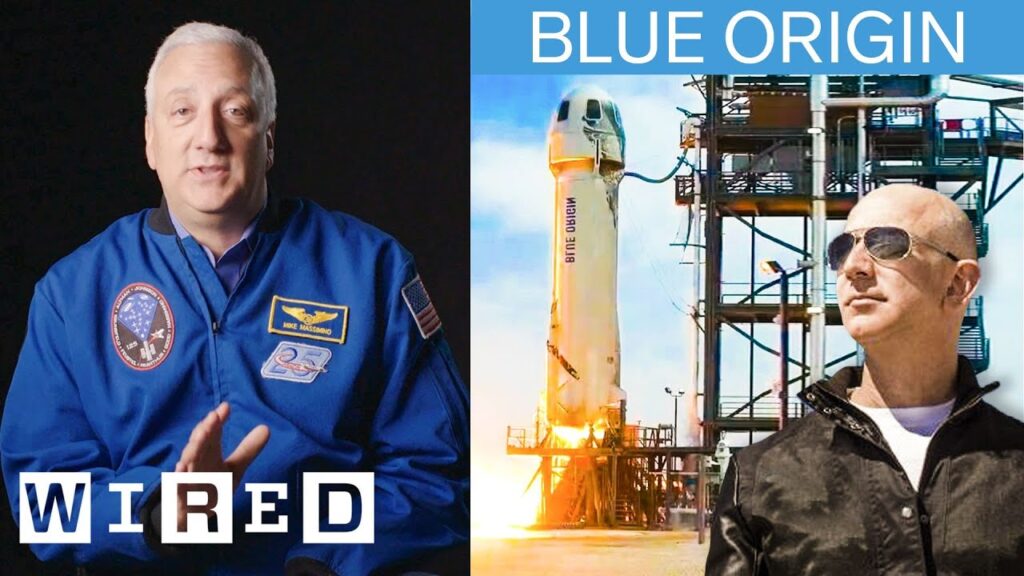Physics Explained: A Q&A with Dr. Michio Kaku on Atoms, String Theory, and Wormholes
Summary
In this article, we dive into a Q&A session with Dr. Michio Kak, a theoretical physicist, who tackles various topics on physics. Some of the topics covered in the session include atoms bonding, string theory, the God equation, black holes, and the four-dimensional world we live in. Throughout the article, we learn about theoretical and experimental physics, the properties of dark matter, and the mechanics behind flying, among other things.
Table of Contents
- Atoms and Molecules: How do they bond?
- String Theory: What is it about?
- The God Equation: What is it?
- Wormholes and other dimensions: Do they exist?
- Black Holes: What happens inside?
- Experimental vs. Theoretical Physics: What’s the Difference?
Introduction
Physics is often seen as complex and daunting, with the mechanics of the universe seeming hard to understand. However, it is important to note that physics is the bedrock of everything around us. From the molecules that make up our bodies to the physics engines that power the graphics in our video games, physics ultimately lies at the foundation of it all.
In this Q&A article, we had the pleasure of sitting down with Dr. Michio Kaku to discuss some common questions related to physics. Dr. Kaku is a renowned physicist, futurist, and popularizer of science. He is the co-founder of String Field Theory, an educationist, and has authored various New York Times bestsellers, including “The God Equation” and “Beyond Einstein.”
Atoms and Molecules: How do they bond?
During the Q&A session, Dr. Kaku was asked, “How do atoms bond?” Dr. Kaku explains that atoms bond due to the vibrations of electrons, which create molecules. He explains that chemically molecules are formed when strings bump into each other, pulling on one another or pushing away. Dr. Kaku goes further to explain that bonding is a result of the “dance” between atoms and their electrons.
String Theory: What is it about?
Another popular question raised during the session was, “What is String Theory, and what makes it so popular?” Dr. Kaku explains String Theory as the belief that tiny subatomic particles are vibrations on a tiny rubber band- or in simpler terms, it explains that these particles are made up of tiny strings whose vibration causes them to behave in a particular manner. Although the theory faces a lot of skepticism, Dr. Kaku explains that it shows promises to provide more explanations about the universe than any other theory.
The God Equation: What is it?
The title of Dr. Kaku’s latest book is “The God Equation.” When asked what the God equation is, he explains that it is a mathematical equation that is supposed to summarize all of physics in one breath. Dr. Kaku compares the God Equation to James Clerk Maxwell’s equations that combine knowledge of electricity and magnetism into a single unifying framework.
Wormholes and other dimensions: Do they exist?
According to Dr. Kaku, we live in a four-dimensional world, and he believes that other dimensions may exist beyond our universe. He expresses that these dimensions could be connected through wormholes, which he describes as tunnels that tunnel through space and time, wiggling their way around to connect different parts of the universe. Dr. Kaku explains that wormholes are a part of the general theory of relativity, and the concept remains theoretical.
Black Holes: What happens inside?
Dr. Kaku was asked what happens inside a black hole. He explained that black holes have so much mass and gravity that they ultimately warp space and time, making it difficult to observe what happens inside. However, he does go to explain that black holes are made up of collapsed denser objects and that at the center of the black hole, there is infinite density and space-time becomes infinite as well.
Experimental vs. Theoretical Physics: What’s the Difference?
An exciting question asked was, “What’s the difference between experimental and theoretical physics?” Dr. Kaku explains that experimental physics is concerned with measurements and experiments to derive data, whereas theoretical physicists’ work focuses on developing models, theories, and predictions about the universe that experimentalists may test. He explains that both sets of physicists work in close collaboration to advance our knowledge about the universe.
Conclusion
In conclusion, Dr. Kaku’s Q&A session covered a wide range of physics-related topics, and we have highlighted some of the core ideas that he discussed. We learned about atoms bonding, string theory, wormholes, black holes, dark matter, and the difference between experimental and theoretical physics. Throughout the session, Dr. Kaku conveyed the very idea that there are no stupid questions, and he emphasized the importance of theoretical work in trying to explain the mechanics of the universe.







